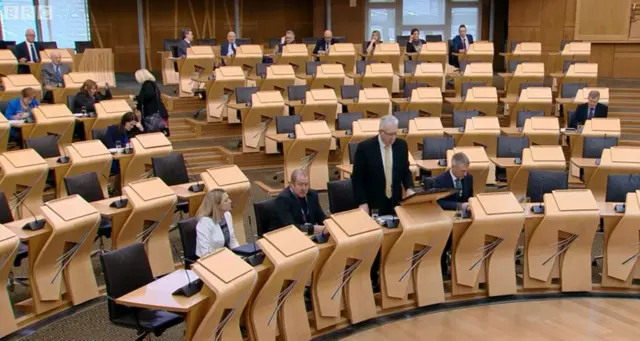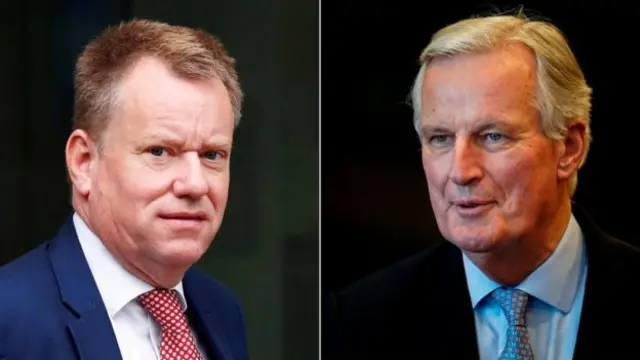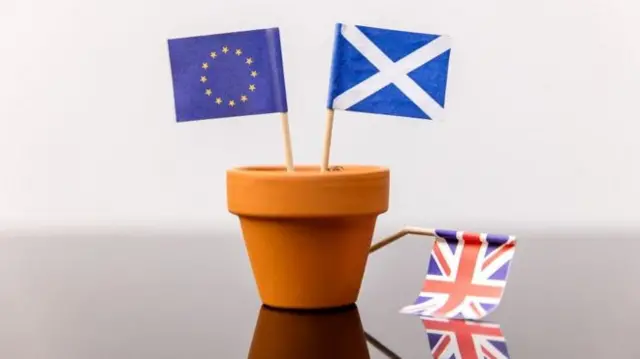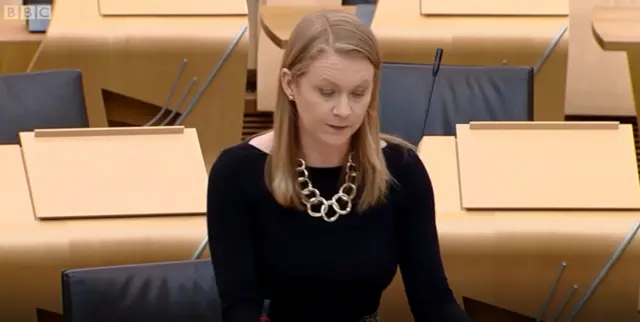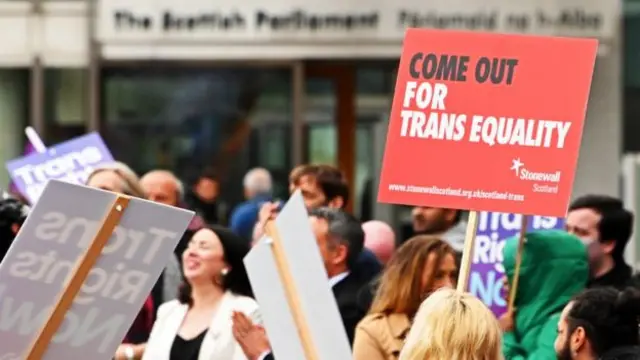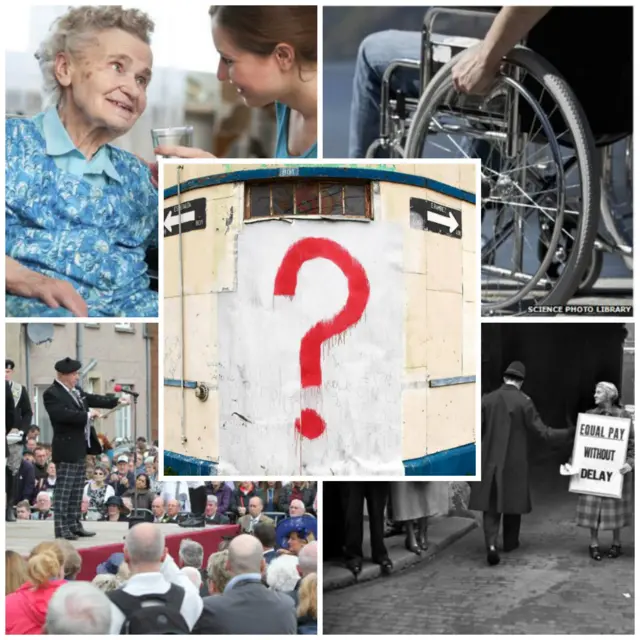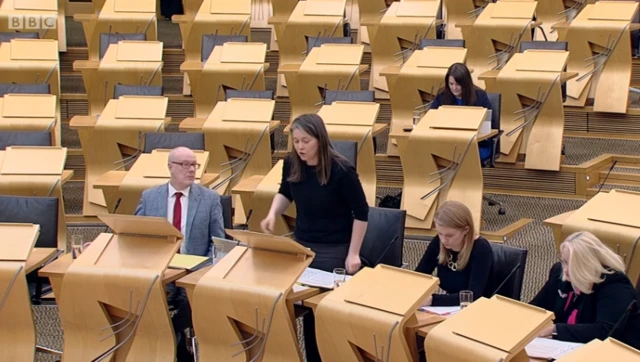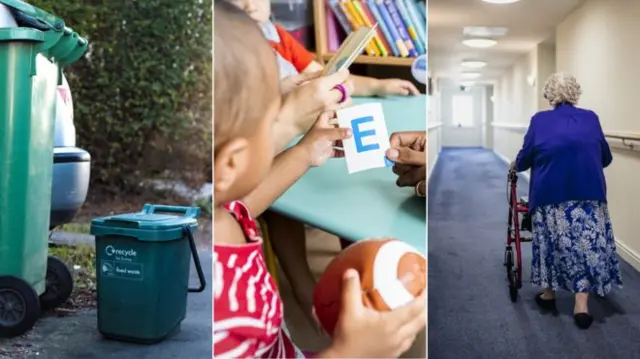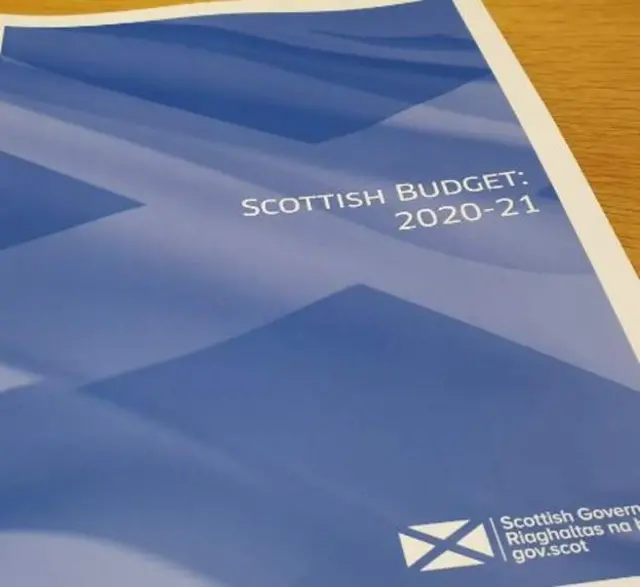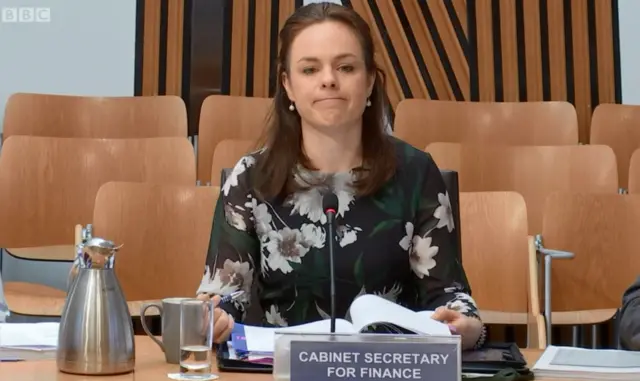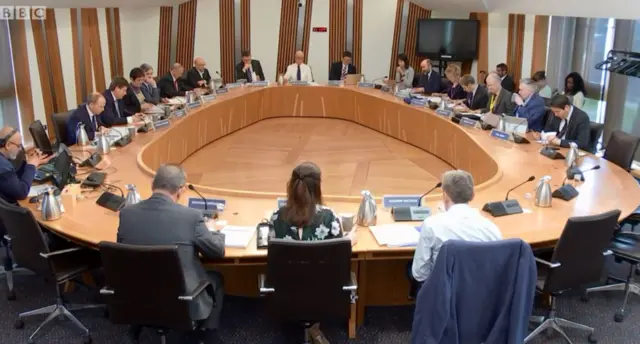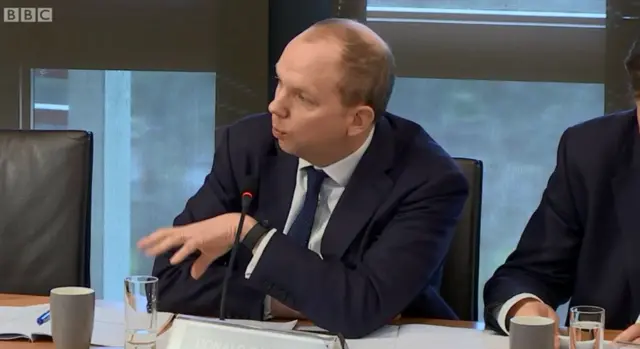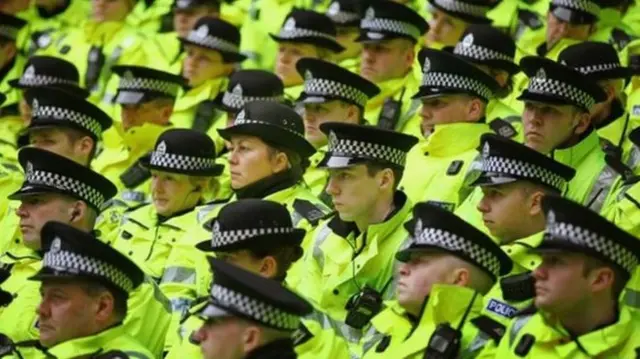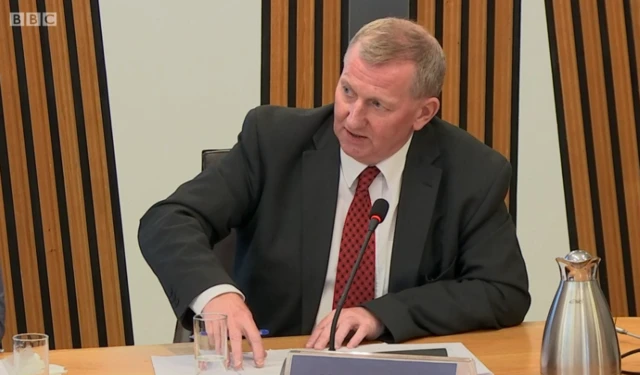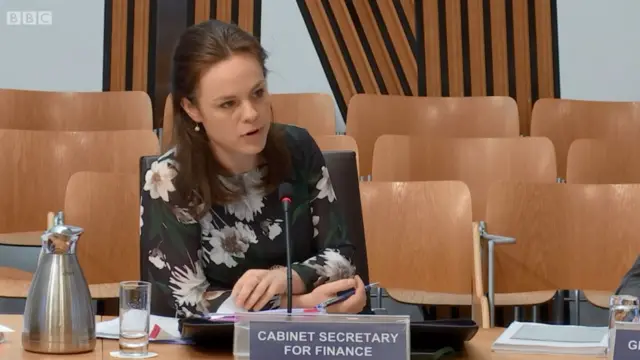Basic free trade deal would make Scotland £9bn worse off by 2030published at 14:19 GMT 4 March 2020
Mr Russell says there has not been agreement on how the devolved governments will be involved in the second stage of negotiations.
Agriculture, environment and fisheries will be at the heart of these negotiations, all of which are devolved areas, he says.
The section of the document on justice issues is "unacceptable in tone and sentiment" the cabinet secretary adds, highlighting Scotland has a separate legal system to the rest of the UK.
The minister says if the basic free trade sought by the UK government is agree, Scotland's GDP would be 6.1% - or £9bn - lower by 2030 than if the UK remained a full EU member.
